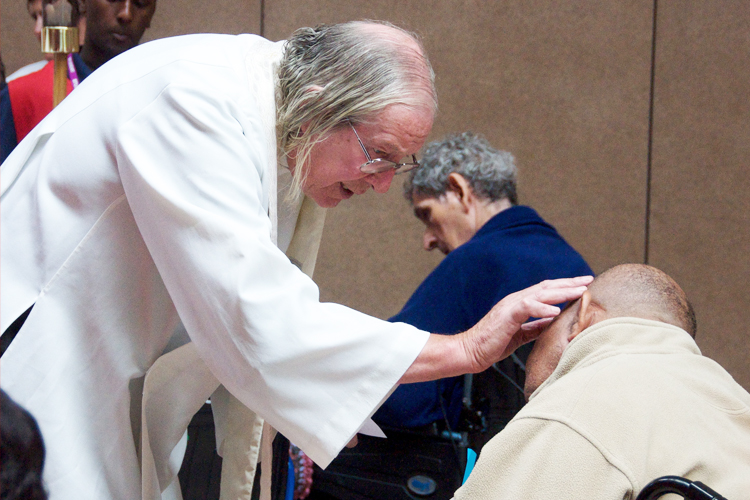What is Confession?
Confession (or Penance or Reconciliation) is the sacrament by which we, repenting and confessing our sins, are absolved of sin through the ministry of a priest.

Why is Confession important?
Confession is important because it is the normal way we can be forgiven serious sin after Baptism. The regular practice of Confession is important because it helps us to deal with our sins quickly, develop a mature conscience and gives grace to resist temptation. The act of confessing itself bestows healing and a sense of release from the burden of sin.
How did Christ establish Confession?
Scripture states that only God can forgive sins (Mk 2:7). However, Jesus Christ gave his power to forgive sins to his apostles. The format of the sacrament has varied over time; however, the requirement for priestly absolution and verbal confession has remained constant. By these means, the mercy that Christ brought is perpetuated until the end of time.
“Receive the Holy Spirit. If you forgive the sins of any, they are forgiven; if you retain the sins of any, they are retained.” John 20:22-23
THE ACTIONS OF THE PENITENT
Contrition: being sorry for my sins and having a firm intention to avoid them in future.
Verbal confession of sins: the telling of the kinds of sins I have committed and the number of times I have committed them. I must include all my mortal sins.
Will to make reparation: the intention to repair the damage caused by my sins and to fulfil the penance set by the priest.
THE ESSENTIAL WORDS OF THE PRIEST
After hearing my confession of sins, giving me a penance and hearing my act of contrition, the priest gives me absolution. The key words are, “I absolve you from your sins in the name of the Father, and of the Son, and of the Holy Spirit. Amen.”
Confession and Reconciliation
Confession is also called ‘Reconciliation’. Sin damages our relationship with God and with the Church. It is this sacrament that reconciles us once again.
Repairing the damage of sin
The damage caused by sin needs to be repaired even after the guilt of the sin itself has been forgiven by absolution. For this reason the priest will give a penance during Confession. This is generally a prayer, a work of mercy, a sacrifice or an act of self-denial. By the mercy of God, these acts remove the punishment we deserve due to the effects of our sins. Indulgences offered by the Church are another means of remitting this punishment.
What is Anointing of the Sick?
Anointing of the Sick is that sacrament by which sick persons, through anointing with oil and the prayer of the priest, receive grace for the salvation of their souls and possible bodily healing.

Why is Anointing of the Sick important?
Anointing is important because it strengthens our souls and bodies at the approach of death, either to heal us or to help us to die in a state of grace. This is a crucial help because the condition of our souls at death completes our earthly pilgrimage and fixes our state for eternity.
How did Christ establish Anointing?
Scripture describes Jesus as the physician of our souls and bodies. He also promised that his disciples would lay hands on the sick, who would recover (Mark 16:17-18). The Letter of James (James 5:14-15) bears witness to the fact that the first priests of the Church anointed the sick.
What are the effects of Anointing?
The effects of Anointing are the strengthening of the sick person, the remission of sins (even when the person is incapable of confessing their sins) and possibly also bodily healing.
When is Anointing given?
Anointing is given when a person is seriously ill or in danger of death. However, it should not be delayed until the point of death, and if the person subsequently recovers and relapses later, he or she can receive the sacrament again.
This article is originally from ‘CREDO: The Catholic Faith explained’ by CTS.
Video resources